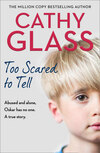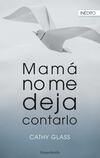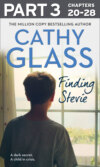Kitabı oku: «Too Scared to Tell», sayfa 3
Chapter Four
Stressed and Tense
I arrived home still slightly unsettled from seeing the men waiting outside school. Had Oskar not recognized them the day before and then denied knowing them it probably wouldn’t have played on my mind, but he had recognized them – I was sure of it. However, aware I was likely to have a busy day, I thought it wise to unpack Oskar’s bag straight away. The first few days after a new child arrives are usually very busy and I was expecting to be spending a lot of time on the phone. I heaved the bag upstairs, along the landing and into Oskar’s bedroom. It was a fine spring day outside and the sun streamed through his bedroom window. I opened it a little and then unzipped the bag and began sorting through it.
It looked to me as though whoever had packed the bag had just grabbed whatever clothes of Oskar’s had come to hand. Some of them needed washing and I put those to one side, others had been washed but not ironed. There was a pair of pyjamas that looked too small for Oskar, a pair of grey school trousers, well-worn blue joggers, various socks (which I paired), some underpants, a vest, a zip-up jacket, new trainers and an old bath towel. There were also four small plastic toy cars. All in all, it was a meagre and rather sad selection, but I set about putting the clean clothes in his drawers and the toy cars on a shelf in his room. There is a great temptation as a foster carer – wanting the best for the child – to discard old possessions and replace them all with new. I would be buying Oskar plenty of new clothes (and toys), but I wouldn’t be getting rid of his old things. These would be a poignant reminder of – and link to – home, and also legally they belonged to his mother.
Having put away the clean clothes and the bag they came in, I scooped up the items that needed washing and took them downstairs, where I put them in the washer-dryer with the rest of the laundry. Not a moment too soon, for as the machine began its cycle the landline rang. I answered it in the kitchen and it was Andrew, Oskar’s social worker.
‘Good morning. What sort of night did Oskar have?’ he asked.
‘Good. No tears. He slept well. Although it appears he’s used to sleeping with his mother and some other women. I don’t know who they are. He gave me some names but said they weren’t his sisters, cousins or friends.’
‘How many women?’
‘He mentioned three. I wrote their names in my log; shall I fetch it?’
‘Not now. I’ll know more when I’ve spoken to his mother, but from what Mr Nowak told me yesterday it seems they live in a multiple-occupancy house and share childcare.’
‘That would make sense,’ I said. ‘Although Oskar was very vague about them. He didn’t say much. I got the feeling they weren’t close. But he had a good dinner and breakfast,’ I continued. ‘And is now in school.’
‘Yes, I’ve just spoken to the Head. I understand Mr Nowak brought in some of Oskar’s belongings.’ Schools and social services work closely together in matters of child protection.
‘Yes, I’ve unpacked them,’ I said. ‘There are some clothes and a few toy cars, but I’ll need to buy more and also another school uniform.’
‘OK.’ I assumed Andrew was making some notes. ‘Any behaviour issues?’ he asked.
‘Not so far, although it’s early days. Oskar is very quiet and withdrawn at present, but not upset. He didn’t want a bath or shower last night, and I didn’t insist.’ This point wasn’t just about hygiene; it meant I hadn’t had a chance to check Oskar to see if he had any injuries apart from the bruise on his cheek.
‘I’m going to arrange a medical for him, hopefully for later today,’ Andrew said. It’s usual for a child to have a medical when they first come into care, but it can sometimes take a few days to organize. ‘Oskar’s mother is still abroad, but I’ve left a message on her voicemail to phone me. Has Oskar said any more about how he got the bruise on his cheek?’
‘No.’
‘Are there any other injuries you can see?’
‘No. But I haven’t seen him undressed. He wanted to sleep in his clothes to begin with. I persuaded him to change, but I had to wait outside his bedroom door while he did so.’
‘I see. I’ll sort out a medical. That should pick up anything else. You’re keeping a note of all this?’
‘Yes.’
‘Thanks. I’ll be in touch about the medical and also I’ll need to visit Oskar and you later in the week.’ When a child is placed in care the social worker is duty-bound to visit the child within the first week and then at least every six weeks for the first year.
We said goodbye, and I thought while I had the phone in my hand I should phone my supervising social worker, Edith, and update her. My call went through to her voicemail, so I left a message saying that Oskar had had a good night, was now in school and I’d updated his social worker. If she needed to know more, she’d phone me.
Now I’d gone through Oskar’s bag of belongings from home I had a better idea of what I needed to buy for him, so I made a list, downed a quick coffee and then drove into town. I’d just parked when my mobile rang. It was Andrew again. ‘I’ve arranged for Oskar to have a medical at the Health Centre this afternoon at two-thirty,’ he said. ‘I’m emailing the form to the clinic now. I’ll inform his school that you will be collecting Oskar early today. How much time will you need?’
‘Half an hour to be on the safe side, so I’ll have to collect him at two o’clock.’ I’d taken children to the Health Centre before, so I knew where it was.
‘I’ll tell them,’ Andrew said.
‘Any news from Oskar’s mother yet?’ I asked.
‘No.’
Having said goodbye, I headed for the shops, list in hand, where I quickly set about buying Oskar the items he needed. I could tell by looking at the clothes if they would fit him; I’m a reasonable judge after years of looking after children, as most parents and carers are. I bought him two sets of pyjamas patterned with pictures of dinosaurs, a dressing gown, slippers, casual clothes, socks, underwear and grey school trousers. The T-shirts and jerseys showing the school’s emblem could only be bought from his school. I was hoping I’d have time to buy those later when I collected Oskar for his medical. Andrew had arranged the medical very quickly and I assumed it was because Oskar had suffered at least one suspected non-accidental injury – the bruise to his face – and might have more, so it was prudent to have him examined as soon as possible. Had he had more serious injuries, he would have been taken to hospital to be treated and examined.
On the way out of the shopping centre I stopped off at the department store where I knew they had a good selection of cute, cuddly soft toys. I think all children need at least one cuddly toy they can hold close, take to bed if they wish and draw comfort from. Oskar might already have one at home, but it hadn’t been packed. After some deliberation – I could have bought the lot – I chose a traditional teddy bear with very soft brown fur. When my children were young and I had to re-equip a child we were fostering with virtually everything, I used to buy them a little gift to redress the balance, otherwise it could have seemed like favouritism. They didn’t expect it, and appreciated that they had plenty of clothes and belongings while the fostered child often had very little, but I felt better for doing it. Now they were older they often bought the child small gifts too, which was nice of them. It doesn’t take much to bring a smile to a child’s face. But of course, the best gift of all is to be shown kindness, attention and respect.
Once home, I made a sandwich lunch, which I ate as I put together a pasta bake for dinner later, then it was time to set off to Oskar’s school. I arrived outside at 1.45 p.m., buzzed the security-locked outer gate and a few seconds later it released. I crossed the empty playground and buzzed the entry system on the main door.
‘You’re early,’ the school secretary said a little curtly as I entered. ‘I was told to expect you at two o’clock.’ She was in the open-plan office to the right and was clearly very busy.
‘I was hoping I could buy Oskar some school T-shirts and jerseys,’ I said. ‘He only has one with him.’
‘We sell them at the end of school,’ she said, concentrating on her computer screen.
‘Shall I wait until tomorrow afternoon?’ I asked. ‘I won’t be returning to school today.’
There was a moment’s silence when I thought I might have heard a tut, and then she stood and asked, ‘What size and how many?’
‘Two of each, please. Aged six.’
She disappeared out the back of the office while I waited in reception. A few minutes later she reappeared with the garments in plastic bags. I thanked her and paid. ‘You can go up and collect him now if you like,’ she said. ‘It’s nearly two o’clock. Sign in the Visitors’ Book first.’
I thanked her again, signed the book and made my way to Oskar’s classroom, feeling like a chastised child. Much has changed since I was at school, but it doesn’t take much for me to be transported back to my own school days. The sounds, smells, classrooms, assembly hall, terse comments – they all form poignant reminders, good and bad.
I looked through the glass panel in the door of Oskar’s classroom and saw Miss Jordan moving between the tables as the children worked. She saw me and nodded, then brought Oskar to me. ‘Thank you,’ I said.
‘See you tomorrow,’ she smiled, and returned to her class.
‘Where are we going?’ Oskar asked, worried, as we went along the corridor.
I was sure Miss Jordan would have told him, but I explained. ‘To the Health Centre so a doctor can check you over and make sure you are healthy. There is nothing for you to worry about.’
We entered reception and I signed out of the Visitors’ Book as the school secretary watched from the office, then I pressed the button to release the main door.
‘Have you ever seen a doctor before?’ I asked Oskar as we crossed the playground.
‘Yes, I had a cough, but I’m not ill now.’
‘I know. This is to make sure you stay well. The doctor will weigh and measure you, listen to your chest, check your eyes and ears and probably feel your tummy. It’s nothing for you to worry about,’ I said again, for Oskar was still looking very serious. ‘I bought you some new clothes today,’ I said, changing the subject. ‘And a little present.’
Most children would have asked what the present was, but Oskar didn’t. He got silently into the car and remained quiet as I drove. ‘Are you all right?’ I asked him after a while.
‘Yes,’ he said, but in a way that didn’t reassure me at all.
‘You know you can tell me if there is something worrying you,’ I said, as I had said previously, and would say again.
‘Yes,’ he said quietly.
‘Did you have a good morning at school?’
He didn’t reply but gazed out of his side window, deep in thought.
‘What’s your favourite subject?’ I asked, trying to engage him.
‘Science,’ he said in a deadpan voice.
I continued talking to him and then I fed a CD of popular children’s songs into the player. Oskar was quiet all the way to the Health Centre and then held my hand as we crossed the car park. I gave his name to the receptionist and said we were there for his medical. She told us to take a seat in the waiting area. The centre ran various clinics for children and adults, including immunizations, well-woman check-ups, blood tests and dentistry. Some of the children were playing with the toys provided, but Oskar just wanted to sit beside me. I picked up one of the children’s story books, but he was too preoccupied to take an interest. I tried talking to him, but he was locked in thought. I reassured him again that the medical was nothing to worry about. Another few minutes passed and then Oskar’s name flashed on the digital display screen together with a recorded voice giving his name and telling us to go to Consulting Room 2. He started and looked at me, petrified. ‘It’s OK,’ I said. ‘It’s telling us it’s our turn.’
I took his hand and we went down a short corridor until we came to a door marked Consulting Room 2.
I knocked and a female voice called, ‘Come in.’
As we entered, a young woman doctor seated at a desk swivelled her chair round to greet us. ‘Hello, I’m Doctor Yazdi, and you must be Oskar.’ She smiled pleasantly.
‘Yes,’ I replied on Oskar’s behalf, as he’d said nothing.
‘And you’re Cathy Glass, his foster carer,’ she said, glancing at her computer screen.
‘That’s right.’
‘Take a seat, please.’
We sat in the two chairs at right angles to her desk. She was very nice, but Oskar was frowning harder than ever now and his legs were jumping up and down agitatedly. ‘There’s nothing to worry about,’ I told him.
The doctor smiled. ‘And you’re six?’ she said to him.
He managed a small nod.
‘When did he come to you?’ she asked me.
‘Yesterday.’
‘Does he have bruises anywhere else apart from his cheek?’ she asked, glancing up. I assumed it was mentioned in the online form Andrew had sent for her to complete.
‘Not as far as I know, but I haven’t seen him undressed.’
‘OK. Good boy. Let’s start by having a look in your ears,’ she said to Oskar with a smile. ‘Can you hear all right?’
He gave a small nod. She took an otoscope from a drawer in her desk and looked in both of Oskar’s ears. He didn’t seem to mind, although I know it can feel a bit unpleasant. ‘They’re fine,’ she said, then typed in the result. She returned the otoscope to the drawer and took a wooden tongue depressor from a sealed packet and then asked Oskar to open his mouth so she could examine his mouth and throat. He did as she asked.
‘That’s all fine,’ she said, throwing the depressor in the bin. ‘And his teeth are in good condition.’ I threw Oskar a reassuring smile.
She then checked his eyes. ‘Do you wear glasses?’ she asked.
Oskar shook his head.
‘Can you read the letters on that chart?’ She pointed to the Snellen eye chart on the wall.
Oskar stared at her.
‘Does he know his letters?’ she asked me.
‘Yes,’ I said. ‘He’s learning to read.’
‘Read the top line for me, please,’ she told him.
Finally, he did. Slowly, in a small, plaintive voice, he began reading from the top, enough to confirm he could see all right.
‘Good boy,’ Dr Yazdi said with another cheerful smile. ‘His immunization programme is up to date,’ she said to me, glancing at the screen.
‘Is it? I didn’t know.’
‘According to our records it is, although the immunizations weren’t done in this clinic. Now, let’s weigh and measure you,’ she said to Oskar. ‘Can you stand on these scales for me?’
He didn’t move, so I took his hand and helped him onto the scales by the doctor’s desk. ‘His weight is at the lower end of average,’ she said. ‘Does he have a good appetite?’
‘From what I’ve seen, yes, but I understand he used to sometimes arrive at school hungry, which was one of the concerns.’
‘He could do with putting on a few pounds,’ she said, making a note. ‘Let’s see how tall you are,’ she said to Oskar, and drew him to the height bar. ‘Again, it’s the lower end of average,’ she said. ‘But nothing to worry about. He’ll probably have a growth spurt.’
I threw Oskar another reassuring smile and he looked back at me, expressionless.
‘Now I’d like you to come and sit on the couch so I can listen to your chest,’ Dr Yazdi said.
Oskar didn’t move, so I took his hand and led him to the couch.
‘Can you climb up onto it?’ she asked, pulling out a step stool from beneath.
Oskar shook his head.
‘I’m sure you can, a big boy like you,’ Dr Yazdi encouraged.
It wasn’t high and could be managed by the average two-year-old, but Oskar stood still, head down, staring at the floor.
‘Up you get,’ she said, ‘and sit on the couch for me.’
I touched his shoulder and reluctantly Oskar did as she asked. Her stethoscope was already looped around her neck. As she went to raise Oskar’s jersey at the front so she could listen to his chest he grabbed it and pulled it back down again.
‘What’s the matter?’ she asked, concerned.
He shook his head and clutched his jersey so tightly to him his knuckles were white.
‘There’s nothing to worry about,’ I reassured him.
‘I just want to listen to your chest, Oskar,’ Dr Yazdi said. ‘Look, like this.’ She slipped the chestpiece into the front of her blouse and put in the earpieces. ‘I can hear my heart beating. Would you like a listen?’
A trained paediatrician, she was so patient. She allowed him a listen and then gradually Oskar released his jersey and let her lift it up so she could listen to his chest and then his back. This also gave her the opportunity to check his skin for any more bruising or suspicious marks. I couldn’t see any.
‘His heart and lungs are fine,’ she said to me. Then to Oskar, ‘Good boy. Now I want you to lie down so I can feel your tummy. And I’ll have a look at your arms and legs too. Have you been to the toilet today?’
Oskar didn’t reply, so I said, ‘Yes, he went this morning.’
‘Good, and he takes care of his own hygiene?’
‘Yes,’ I confirmed.
‘Lie flat on your back then,’ she told Oskar, who hadn’t moved. ‘It’s not going to hurt.’ He still didn’t move.
‘Lie down, love,’ I said. ‘It’s part of the medical. I’ll hold your hand if you like.’
He gave me his hand and gradually I eased him down, but I could feel how tense he was.
‘He’s very anxious,’ Dr Yazdi commented. ‘Is he always like this?’
‘He’s been very quiet since he arrived, but he hasn’t been this tense.’
‘Don’t you like doctors?’ she asked him with a smile.
Oskar stared back, petrified.
‘It won’t take long,’ she said. ‘Let’s have a look at your arms and legs first then.’ She began by easing up his trouser legs as far as they would go to the knees and examining his legs. ‘They’re fine,’ she said. Then she looked at his arms and moved up his jersey. With a flat hand she began lightly pressing his stomach. Oskar shut his eyes, held his breath and grimaced.
‘I’m not hurting you, am I?’ the doctor asked, pausing, concerned.
He didn’t reply but kept his eyes screwed tightly shut. She glanced at me and then moved her hand to his lower abdomen. Oskar went rigid. He was so still and tense that for a moment I thought he was going to fit.
‘OK, that’s enough,’ the doctor said. ‘You can get off the couch.’ I helped him down. ‘From what I can see he appears healthy, but he’s very anxious. I’ll send my report to his social worker. He may want a follow-up medical in a few months when Oskar is more relaxed.’
I thanked her and helped Oskar into his jacket, then I took his hand as we left the consulting room. I wasn’t reassured by hearing the doctor pronounce Oskar healthy, not at all. The only other child I’d seen so stressed at having a medical and who hadn’t wanted to remove their clothes had been sexually abused. Alarm bells were ringing again, although of course it was still only a suspicion. There was no proof, and I sincerely hoped I was wrong.
Chapter Five
You Know Those Men?
Oskar was just as quiet in the car on the way home from the Health Centre as he had been on the way there. I asked him a couple of times if he was all right, without much response, and then I said I was going to stop off at the supermarket so he could choose some food he liked. He didn’t reply but I went anyway, as I needed to top up on general food items like bread, milk, fruit and so forth.
‘Would you like to push the trolley?’ I asked Oskar. Most children love being in charge of a supermarket trolley, sometimes to the detriment of other shoppers! Oskar shook his head, but he was content to walk beside me as we went up and down the aisles.
‘Tell me if you see anything you fancy,’ I said. It’s not an invitation I would offer to some children, as we would end up with a trolley full of crisps, sweets, biscuits and Pot Noodles. Oskar didn’t make any suggestions at all.
The supermarket, like many, had plenty of counters displaying food from other countries and I pointed these out to Oskar and lingered by them, hoping he would spot something he liked, but he didn’t. He wasn’t interested and remained thoughtful. When we got to the bread counter, I asked him if he could see any of the rolls he had for breakfast at home. Without any enthusiasm, he took a bag of sourdough bread rolls with seeds on and passed them to me. ‘Good. What would you like to go in them?’
He shrugged. ‘Don’t mind.’
I thought that once his social worker had spoken to his mother, I’d have a better idea of Oskar’s likes and dislikes. All I knew at present was what Oskar’s uncle had told Andrew: that Oskar didn’t have any food allergies or special dietary requirements. But all children have food preferences, which I try to accommodate within reason. For now, however, I bought the rolls and some more ham and cheese filling, as well as the other items we needed. Oskar remained quiet and pensive as we completed the shop, and afterwards, when we were in the car going home, I asked him if there was anything wrong, but he shook his head. Then, as I drove, he suddenly asked, ‘Will I have to have another medical?’
‘Possibly in the future. Most children do, but it’s nothing to worry about.’
‘I don’t like taking off my clothes,’ he said.
‘I know.’ I glanced at him in the rear-view mirror. ‘Why?’
Silence. He was staring out of his window and frowning.
‘Is there any reason you don’t like undressing?’ I asked him. ‘We all have to undress sometimes, to shower, go swimming or when we see a doctor.’
There was a long silence and then he said again, ‘I don’t like taking off my clothes.’
‘I know, you said. Is there a reason?’ There was no reply and so the matter was dropped.
Oskar and I were the only ones in when we arrived home, apart from Sammy, who, hearing us, had shot in through the cat flap in the kitchen, startling Oskar. I was unpacking the shopping and Oskar had been standing to one side, watching me. I noticed he didn’t let me far out of his sight. Sammy began meowing loudly for his dinner. ‘Would you like to feed him?’ I asked Oskar.
He nodded.
I broke off from unpacking the groceries, took the bag of dry cat food from the cupboard and gave the scoop to Oskar. ‘Just one scoop,’ I said. ‘Place it in his food bowl.’
Oskar fed Sammy and then watched him eat, while I finished unpacking the shopping.
‘I bought you some new clothes, and there’s a present for you on your bed,’ I said to Oskar.
I was expecting some form of positive reaction, but to my astonishment he said, ‘I don’t want it.’
‘But you haven’t seen what it is yet,’ I said, smiling.
He looked at me, wide-eyed and wary, as he often was.
‘Do you want to go up and see what it is?’
He shook his head.
‘OK, shall I bring it down?’ Some children don’t like going upstairs by themselves, and the house was still strange to him.
He didn’t reply, so I went upstairs and brought down the teddy bear, which was still in the store bag. ‘I hope you like it,’ I said, handing it to him.
I might have been giving him hot coals for all the trepidation he showed in opening the bag. He gingerly parted the top, peered inside and looked at me.
‘It won’t bite. It’s a cuddly teddy bear,’ I said, stating the obvious. ‘With lovely soft fur. We could sit him at your place at the table,’ I suggested.
He handed me the bag, so I assumed he was in agreement, and I sat the bear in the chair next to Adrian’s. He watched me warily but didn’t say anything. ‘You’ll have to think of a name for him,’ I suggested.
‘Luka,’ he said.
‘That’s a nice name.’
‘It’s my brother’s.’
‘Brother?’ I asked, astonished. There had been no mention of a brother.
‘Where does he live?’ I wondered if Andrew knew of the existence of Oskar’s brother, which could raise further child-protection issues.
Oskar just looked at me.
‘Does your brother live with you?’ I asked.
He shook his head.
‘Where is he?’
‘With my aunt.’
‘Where?’
He shrugged.
‘How old is Luka? Do you know?’
‘Twelve.’
‘Do you have any other brothers or sisters?’
He shook his head again.
‘OK, just sit at the table for a minute and do a puzzle,’ I said. ‘I have to make a phone call. I won’t be long. I’ll be in the hall.’ I took some puzzles from the toy cupboard and placed them on the table. I needed to tell Oskar’s social worker what he’d said, for I felt sure Andrew would have told me if he was aware Oskar had a brother. It was important he knew as soon as possible, as it’s generally felt that if one child in a family is at risk of harm then other siblings could be too, so normally it’s investigated as a matter of urgency.
Andrew answered straight away. ‘It’s Cathy Glass, Oskar’s carer.’
‘Hello, I was going to phone you to arrange to see you tomorrow. Is everything all right?’
‘Yes, Oskar had his medical. But I thought you should know, he’s just told me he has a brother, Luka, aged twelve, apparently living with an aunt, I’m not sure where.’
‘Yes, I’ve only just found out. I managed to speak to his mother this afternoon and she is with Luka now in —’ He named the country they originally came from. ‘Sorry, I’m in a hurry now, I’ve got to place a child with carers. Can I visit you and Oskar tomorrow after school? I’ll explain then.’
‘Yes, we’ll be home by four o’clock.’
‘Thank you.’
He said a quick goodbye and I returned to the kitchen-diner to find Oskar at the table doing the puzzle, but he had moved seats, so he was now sitting next to where Lucy sat at meal times, rather than Adrian. I didn’t say anything; it didn’t matter. I praised him for doing the puzzle nicely, then set about making dinner for when everyone came home. I could see Oskar seated at the table from where I worked in the kitchen, and every so often he glanced at me, then he asked in a small voice, ‘Can I sit here?’
‘Yes, if you want to. Don’t you want to sit next to Adrian?’ Most boys we fostered thought it was a huge privilege to sit next to Adrian and spend time with him. Often, they bonded with him first. Adrian was tall like his father, but gentle, sensitive, patient and a good role model for boys. His long-term girlfriend Kirsty was lovely too and worked as a primary school teacher.
Oskar hadn’t replied, so I continued to prepare dinner and then laid the table. Paula was in first and I explained to her that Oskar would prefer to sit in her place next to Lucy, and of course she didn’t mind and was happy to sit anywhere. We all had dinner together shortly after six o’clock and Oskar enjoyed the spaghetti bolognaise, although I noticed him occasionally stealing glances at Adrian as we ate. Once we’d finished, I listened to Oskar read his school book – his teacher expected him to read each evening – while Adrian, Lucy and Paula did their own thing. After he’d read, I asked him if he wanted to play a board game, but he didn’t, so I read him some stories and then began his bath and bedtime routine.
Oskar was still very quiet, but I hoped that as the days passed and he got to know us better he would become more confident and assertive. Upstairs, I ran his bath and told him that I would wait outside the door while he washed and to call me if he needed any help. Most children his age aren’t self-conscious about being naked and I often help them in the bath by washing their necks and backs, which tend to get forgotten. Oskar clearly needed his privacy for whatever reason – and that might simply have been from living in a multiple-occupancy house where, doubtless, it was at a premium.
Oskar pushed the bathroom door right to before he undressed. I heard the water stir as he climbed into the bath and began washing himself.
‘Are you OK?’ I asked after a couple of minutes.
‘Yes, don’t come in,’ was his reply.
‘I won’t.’
I heard more water splash and, a few minutes later, the sound of him getting out. When he opened the door, he was in his new dinosaur pyjamas.
‘Very smart,’ I said. I waited while he brushed his teeth and then we went round the landing to his bedroom. ‘Do you want Luka, your teddy bear?’ I asked him. He’d left it downstairs.
‘Yes,’ he said. While he used the toilet, I went downstairs and fetched the bear, and he snuggled into bed with it beside him on the pillow.
I said goodnight and came out.
Who knew what memories that bear brought back now it was named after his brother? There was so much I didn’t know about Oskar and his family situation. I had many questions that needed answering, and I hoped to learn more the following afternoon when Andrew visited. So often in fostering, a child arrives and then their backstory gradually follows, unfolding piecemeal over weeks and months, until eventually a clearer picture emerges, and it’s often heart-breaking. Many of these children have had to cope with so much before they come into care.
Oskar slept well, and in the morning, when I woke him and told him it was time to get ready for school, I thought he seemed marginally more relaxed. I laid out his clean school clothes and waited outside his bedroom door while he dressed, then we went downstairs together. He sat in the place he had chosen next to Lucy and wanted one of the sourdough rolls we’d bought, with a cheese and ham filling and a glass of juice. Afterwards, he went up to the bathroom by himself to wash his face and clean his teeth.










